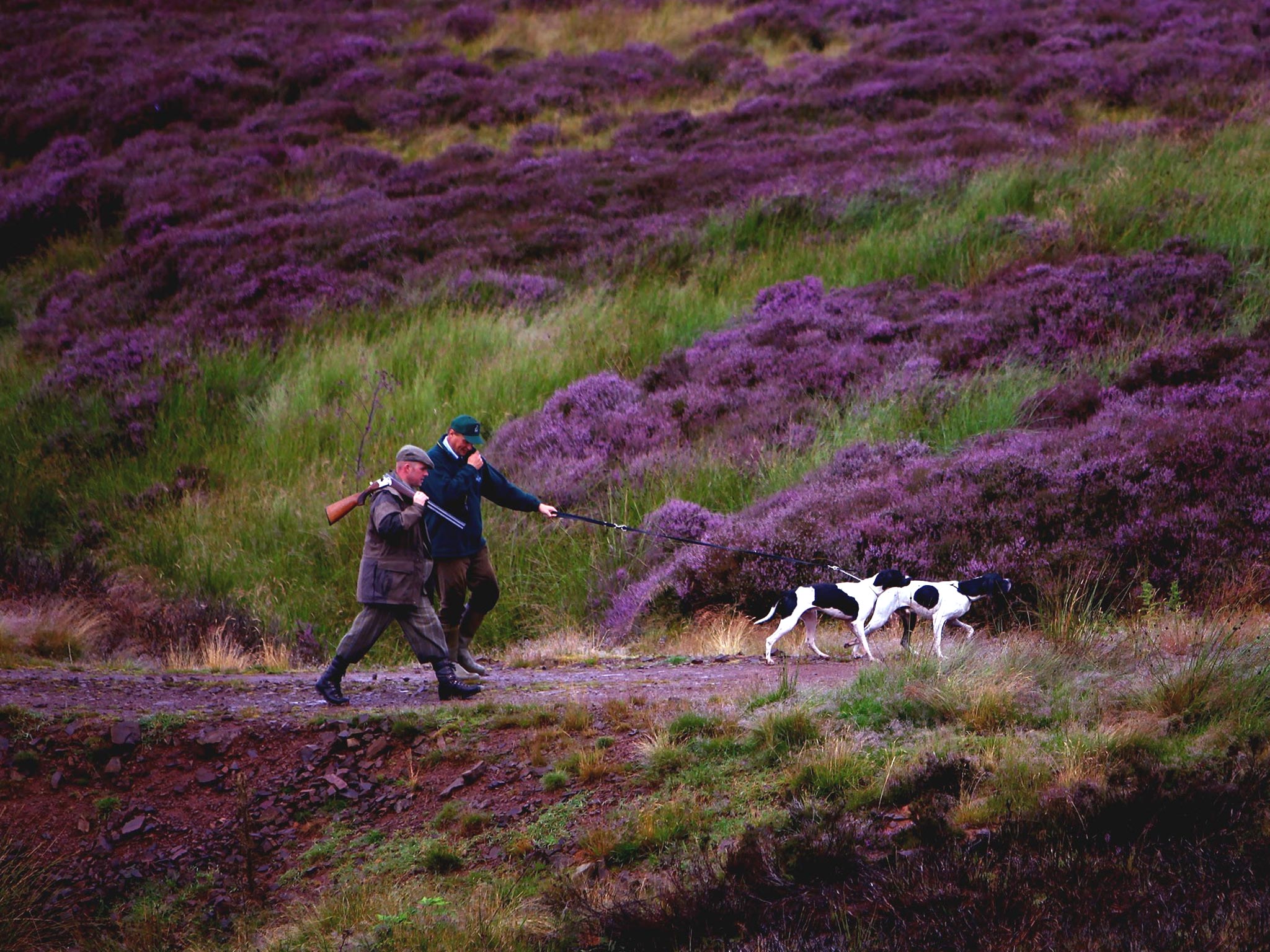Peatlands put in peril as demand for grouse shooting takes off
Thousands of acres of northern uplands rich in wildlife are being ruined, the RSPB is warning

Grouse shooting is ruining the countryside of Northern England and Scotland, as swathes of wildlife-rich upland peatlands are burned to provide the optimum conditions for commercial red grouse, the RSPB has warned.
As much as 77,000 hectares, or 770 square kilometres, of upland peatland has been badly damaged by burning so far, with a marked acceleration in the rate in the past 15 years that looks set to continue as grouse shooting becomes increasingly popular, the RSPB said.
The Pennines, the North York Moors, the Peak District, Dartmoor and the East Highland Glens are the regions most affected by the burning, which has widespread repercussions for local wildlife as well as the fight against climate change and floods. A further 50,000 hectares of this wetland has been drained over the years, in part to help grouse populations, the RSPB adds, pointing out that while this practice is rare nowadays the effects of the drains cut into the hill can last for up to 50 years.
“England’s uplands are some of our most iconic, extensive and important landscapes. Our assessment shows they could be among our most damaged too. For the benefit of wildlife, the environment and wider society there is an urgent need to restore these landscapes by blocking drains, re-vegetating bare peat and bringing an end to burning,” said RSPB’s chief executive, Dr Mike Clarke.
Across huge swathes of uplands, vegetation is burnt on a 10 to 25 year rotation, creating a mosaic of areas of differently-aged heather since grouse prefer to eat younger heather – less than a decade old – and to nest in the older heather, the RSPB contends.
But this is damaging for wildlife such as dunlin, sundew and sphagnum mosses, while the burning also releases the carbon stored in the land and increases the risk of flooding, the RSPB said.
The society is calling on Natural England, the country’s conservation advisor, to ban the burning of vegetation on peatlands. It points out that the advisor’s own report published last May clearly establishes that burning vegetation on deep peat soils is preventing the recovery of the habitat and the species these protected sites are intended to look after.
A spokesman said: “Natural England is currently working on revising our internal guidance following a review of the evidence on the effects of managed burning on upland peatland biodiversity, carbon and water. This revised guidance is being shared with stakeholders and we are considering the feedback we have received. Once we have taken account of these comments we will ensure that our guidance is publicly available.”
A spokesperson for the Moorland Association, which represents grouse shooters, said: “Burning remains a vital tool to protect the hugely valued moorland landscapes from the increasing threat of wildfire and to provide food for sheep and grouse, which in turn fuel the local economy in these remote areas.”
The spokesperson added that 2,000 kilometres of the drainage ditches resulting from “ill-advised” government incentives to improve grazing conditions in the 1950s and 1960s had been blocked up with another 1,000 kilometres worth of blocking planned. This is helping to raise the water table, which reduces the growth of shrubs like heather and lessens the need for burning, the spokesman said.
Other measures to improve the environment for grouse shooting include killing predators of the bird, such as crows, foxes, weasels and stoats and giving them medication to “reduce their parasite burdens,” the RSPB said.
Join our commenting forum
Join thought-provoking conversations, follow other Independent readers and see their replies
Comments
Bookmark popover
Removed from bookmarks